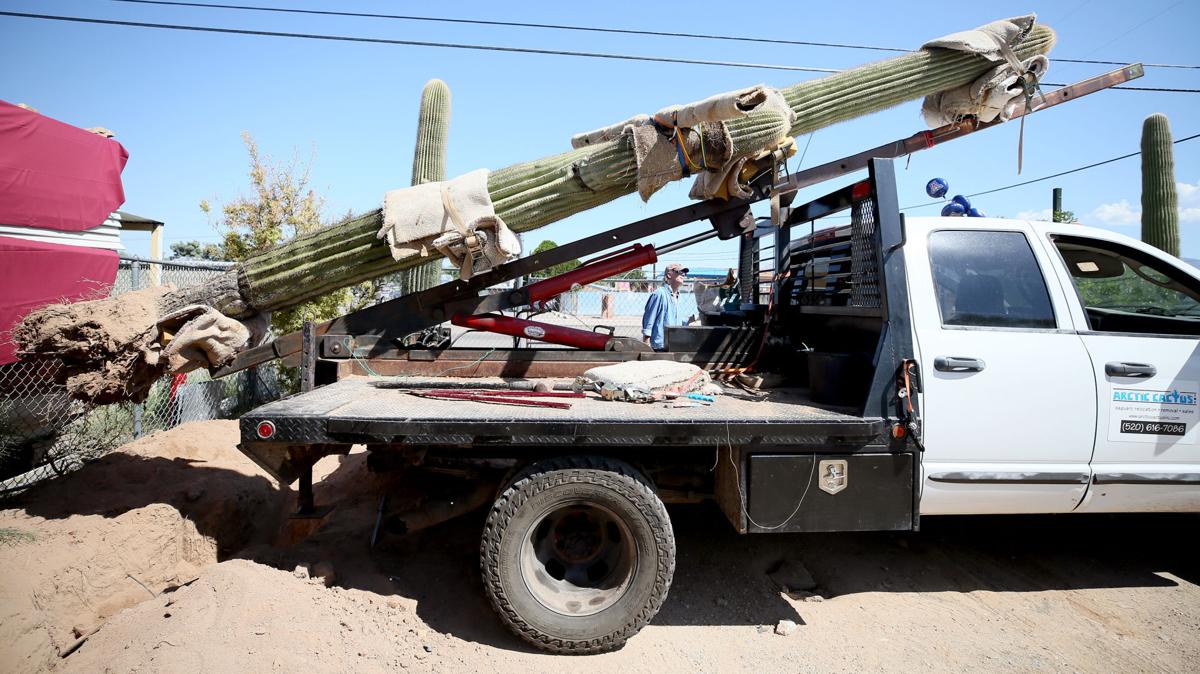No Arizona sites, including three in the Tucson area, were among the top 20 finalists selected by tech and retail behemoth Amazon as a potential home for its massive second headquarters.
Pima County, the city of Tucson and the University of Arizona Tech Park all submitted sites to the regional economic development agency Sun Corridor Inc. The agency passed those materials on to the Arizona Commerce Authority, which submitted the state’s proposal to Amazon. An ACA representative confirmed that all of the Tucson sites were included in the final proposal.
“Arizona submitted a strong, statewide proposal presenting a collection of site options that met the specified criteria,” Senior Vice President Susan Marie wrote in an email. “The ACA is proud of this collaborative effort and we sincerely thank the many communities, economic development partners, academic institutions and private-sector organizations for their hard work and support in creating the unified proposal.”
The ACA previously declined to provide the proposal to the Star, saying that doing so “could harm the state’s competitiveness in the process.”
Though Arizona is now officially out of the running, the ACA again denied the request, pointing to a statute that allows for an exemption to public records law when “the information could potentially harm the applicant’s, the potential applicant’s or this state’s competitive position relating to potential business development opportunities and strategies.”
“Arizona’s proposal contains a great deal of proprietary information on specific development strategies that could compromise our position in other competitive situations,” Marie wrote.
In a follow-up call, Marie clarified that if an Arizona site had been selected, the details of the proposal and incentives offered would have been made public, as is policy. She also said that a lot of details can change between a proposal being accepted and a final deal being inked, and that in the proposal phase of economic development deals, the ACA is simply trying to outline the advantages of the state and what it could eventually offer any company.
Among the finalists for the roughly $5 billion facility were major coastal cities, like New York City, Boston, Washington, D.C., and Los Angeles, but also smaller cities like Nashville, Tennessee; Indianapolis; and Columbus, Ohio. Denver was the a second Western city among the finalists.
The company received more than 200 submissions.
Amazon estimates the headquarters would eventually employ as many as 50,000 people at high wages and lead to billions of dollars in economic impact.
A final decision on the site is expected this year.
In its request for proposals, the company said it was looking for a metropolitan area with more than 1 million residents and economic incentives, which it said would “be significant factors in the decision-making process.”
Tucson’s submission included several tax incentives. Pima County was hoping a 120-acre parcel it owns near Interstate 10 and the recently renovated West Sunset Road would be seen as a suitable site, while Tucson offered several mostly vacant parcels near downtown and the Tech Park offered up 100 acres near South Rita Road and Interstate 10.
“The project was always going to be a longshot,” said John Boyd, a principal with the national site selection consultant The Boyd Company Inc., adding that sites east of the Mississippi River had a powerful edge. Indeed, only four finalists were west of the river.
Despite the long odds, the exercise of trying to land a major company like Amazon can be beneficial on its own, Boyd said. The connections made and attention generated can lead to unanticipated opportunities down the road.
“Economic development is cumulative,” he said.
As an example, Pima County Administrator Chuck Huckelberry pointed to the failed 2014 effort to attract the Tesla Gigafactory to Tucson, which he said ultimately helped lay the groundwork for a major Caterpillar division coming to town.
“It really forges the relationships that are necessary to bring in a company like that,” Tucson City Manager Michael Ortega said of the attempt to bring in Amazon. “It really gets everybody thinking about Tucson as a whole.”
Tucson was one of many cities that used unorthodox means to catch Amazon’s eye.
Last September, Sun Corridor tried to ship a 21-foot saguaro cactus to the company’s Seattle headquarters, an offer that was politely rebuffed. The cactus ended up at the Arizona-Sonora Desert Museum.
“We were thrilled to be considered for Amazon’s HQ2,” Sun Corridor’s Laura Shaw said in an emailed statement. “We got Amazon’s attention and were bold in presenting our business attributes and assets during the selection process.
“As one of the fastest-growing megaregions in the U.S., we will continue to be aggressive in showcasing Tucson and Southern Arizona as a world-class center in technology, talent, research and manufacturing strength.”
Another tech giant — Apple — recently announced it is planning to build a second campus in the United States. Huckelberry said the Amazon pursuit had been a “good training exercise,” one that might help officials lure the company to what the county is calling the Sunset Innovation Campus, where it had hoped Amazon would set up shop.
“I think the Apple facility would be perfect (there),” he said. “All you’ve got to do is change the name in the proposal.”





